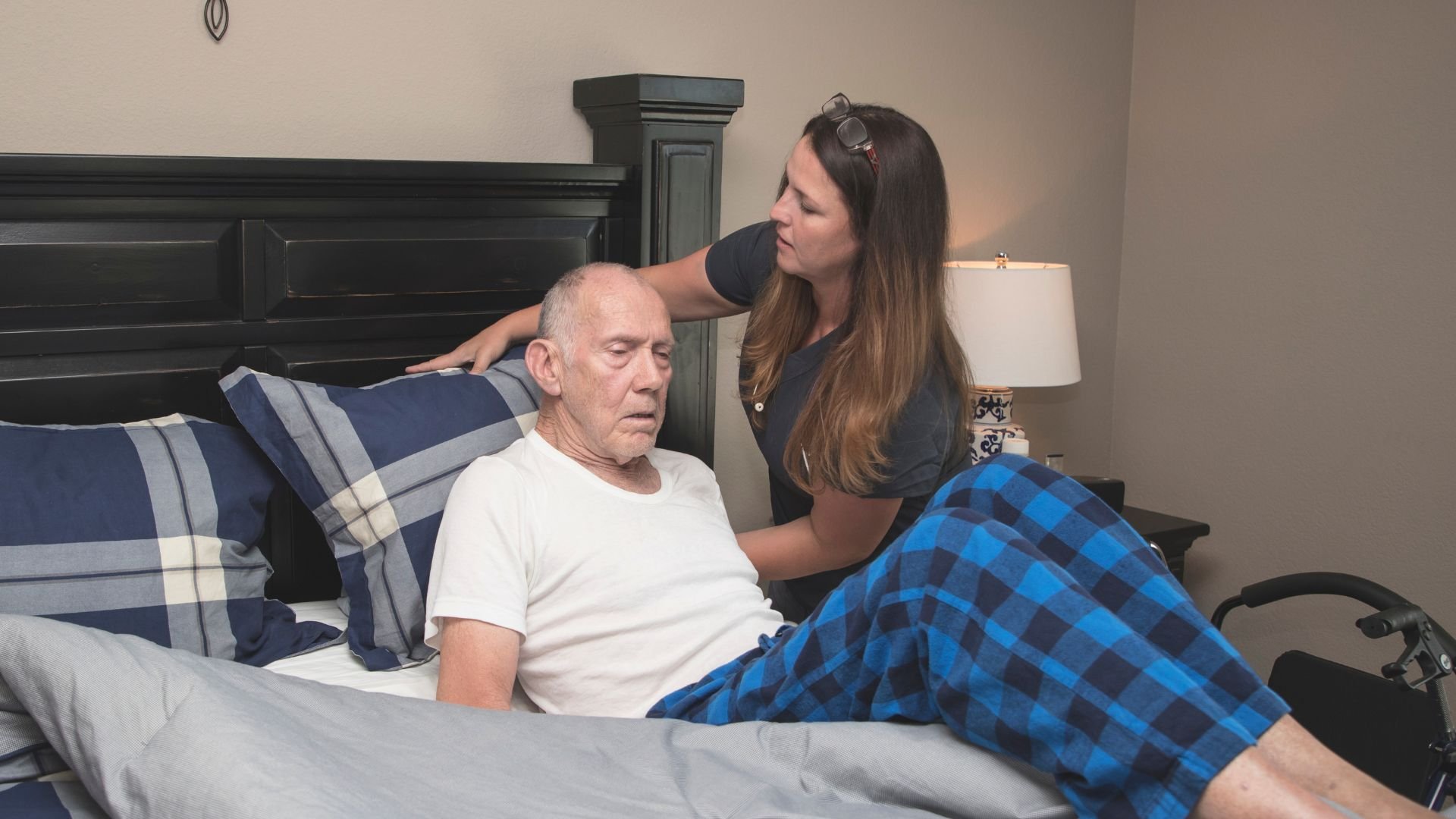Parkinson’s Care for Seniors
By Ewa Frydel, Owner
Parkinson's disease is a neurodegenerative disorder that primarily affects seniors, making caregiving a crucial aspect of managing the condition. Today we will explore the challenges seniors with Parkinson's face and offer valuable insights into providing effective care.
Understanding Parkinson's Disease
Parkinson's Disease is characterized by the gradual loss of dopamine-producing cells in the brain. This leads to a range of symptoms, including tremors, stiffness, impaired balance, and a slowing down of movement.
Impact on Seniors
As seniors face these challenges, it becomes crucial to understand the impact of Parkinson's on their daily lives. Managing the condition involves a comprehensive approach that includes medical intervention, lifestyle adjustments, and a strong support system.
By delving into the intricacies of Parkinson's Disease, we can better comprehend the unique needs of seniors living with this condition and work towards providing effective care that enhances their overall quality of life.
One way is hiring a caregiver.
The Importance of Caregiving
Caregiving plays a pivotal role in the lives of seniors navigating Parkinson's Disease. As the condition progresses, individuals often experience a myriad of challenges, from mobility issues to cognitive decline, making reliable support essential. Caregivers become the cornerstone of effective management, offering not just physical assistance but also emotional and psychological support.
Patience and understanding are key as caregivers help seniors adapt to changes in daily life, ensuring a safe and nurturing environment.
The importance of caregiving extends beyond addressing immediate needs; it contributes significantly to enhancing the overall well-being of seniors, fostering a sense of security and connection that is invaluable in the face of Parkinson's challenges.
Creating a Senior-Friendly Environment
Creating a senior-friendly environment for Parkinson's patients involves key modifications. Install handrails and grab bars for safety, arrange furniture for easy movement, and incorporate adaptive technologies like smart devices. Ensure well-distributed lighting to address vision issues and opt for comfortable seating.
These changes enhance safety, promote independence, and cater to the evolving needs of seniors with Parkinson's.
Nutrition and Exercise
Nutrition plays a vital role in managing Parkinson's Disease for seniors. A balanced diet rich in antioxidants, vitamins, and minerals can positively impact symptoms and overall well-being. Emphasize foods high in omega-3 fatty acids, like fatty fish, to support brain health. Ensure an adequate intake of fiber for digestive health, as Parkinson's may affect the gastrointestinal system. Opt for smaller, more frequent meals to address potential swallowing difficulties. Additionally, hydration is key; encourage seniors to drink water regularly.
Support Networks for Seniors and Caregivers
Finding support groups for Parkinson's Disease can be a valuable resource for both seniors and their caregivers. Start by exploring local community centers, hospitals, or clinics, as they often host support groups or can provide information on available options.
Online platforms, including social media and dedicated websites, offer virtual support communities where individuals can connect with others facing similar challenges. Medical professionals, such as neurologists or Parkinson's specialists, may also recommend local support groups. Additionally, organizations like the Parkinson's Foundation or the Michael J. Fox Foundation provide online directories of support groups across different regions.
Use search terms like "Parkinson's support groups near me," "online Parkinson's communities," and "senior health support networks" to optimize your search and discover the most relevant resources.
Managing Parkinson's Disease in seniors involves creating a supportive environment and providing comprehensive care.
Caregivers play a crucial role in addressing the unique challenges seniors face, offering both physical assistance and emotional support. To create a senior-friendly space, make home modifications such as installing handrails and adaptive technologies, ensuring safety and independence. Nutrition is key, with a balanced diet supporting overall well-being.
Finding support groups, whether local or online, is essential for seniors and caregivers to connect with others facing similar challenges.
By incorporating these strategies, we can enhance the quality of life for seniors navigating Parkinson's, promoting a holistic approach to care.
For more information about Parkinson’s Care, contact us.
We’re here to help!
Legal Disclaimer
This blog provides general information and discussions about Parkinson’s home care and is not intended and should not be construed as medical advice.


